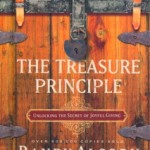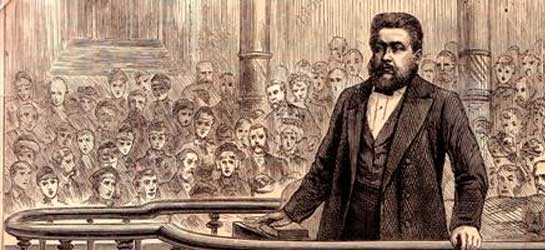Prayerlessness is the most subtle disclosure of our independence from God and is our depraved heart’s declaration of sovereignty. – Paul Tautges
Monthly Archives: July 2014
Do You Have Friends in Ministry?
Last week I sat down with three brothers in ministry, two of whom are twice my age, to put down plans for a pastoral fellowship we coordinate.
Three hours later we scatted to our various posts having done little planning, but oh! those hours were not wasted. As the bottomless chips and salsa kept coming we bantered back and forth about theological matters and counseled one another through pastoral issues.
Such spiritual camaraderie does wonders for the pastor’s soul and ministry.
Pastor, do you have any comrades in the gospel ministry?
I doubt you need any experiential encouragement to find some soul-brothers in ministry. So let me let good Dr. Piper give you some historical encouragement on the matter.
PASTORAL COMRADES
At the 2011 Desiring God Pastor’s Conference Piper delivered his biographical address on Robert Murray M’Cheyne entitled, “He Kissed the Rose and Felt the Thorn: Living and Dying in the Morning of Life.”
40 minutes into the talk he addressed the life-giving, ministry-expanding friendship M’Cheyne had with Andrew Bonar and Alexander Somerville. His eight minute meditation is worth prayerful attention. You can listen to it below:
I found the final few minutes particularly challenging, so on the outside chance you don’t have eight minutes, I’d invite you to consider the following section from Piper’s manuscript.
“Your impact in the world will be exponentially increased through these kinds of friendships. Van Valen captured this exponential effect of McCheyne’s band of brothers like this:
McCheyne’s ‘school’ tended to be more spiritual than theological. Their influence was evident not so much in the college halls or the study rooms of the theological students; they distinguished themselves not in controversy, when it concerned the fight against error, but their contribution was more effective in spreading the classical teaching on grace to the general public. Their task was especially focused on evangelization and revivals and didn’t exist to give substance to theological structures. Hence their strength lay in their preaching, which distinguished itself from the preaching of others “in demonstration of the Spirit and of power”.
“Bands of brothers—comrades in a great cause—are more than the sum of their parts. May God link your arms theologically, spiritually, personally for the sake of this exponential effect.”
Preachers as Window Washers
2 Corinthians 4:1-6 is a zenith of apostolic instruction on true preaching.
Pastors would do well to memorize 4:5, where Paul says, “What we proclaim is not ourselves, but Jesus Christ as Lord, with ourselves as your servants for Jesus’ sake.”
HERALDING GOD’S WORD
The verb here for “proclaim” is κηρύσσω, which describes the tone of preaching as “heralding.” If you’ve rightly understood that encountering God’s word through preaching a battle of cosmic proportions, it won’t surprise you to know that “heralding” is military language.
A herald is in times of war what an ambassador is in times of peace . . . The herald would go into enemy territory ahead of an advancing army to warn the enemy of certain destruction unless they accepted the proffered terms for peace. A gospel herald stands with God’s word in hand and proclaims, “Hear ye! Hear ye! Jesus Christ is Lord. All who swear allegiance to his throne will receive eternal life.”
We preachers must ask our unbelieving hearers, “What will you do with this announcement that Jesus is Lord?” Satan wants to blind their eyes in unbelief and rebellion (2 Cor. 4:4), to keep them as part of His army. But the gospel, the good news of life, is contained in those four words of 4:5: Jesus Christ is Lord. And thus we herald the King who lived perfectly, died sacrificially, rose victoriously, and now reigns supremely. We cry out for them to cry out to Him in faith and repentance. The two eyes of faith and repentance are the only way they will ever see the Son in all his glory. And so we call them to swear allegiance through their seeing of Him.
PREACHING IS WINDOW WASHING
Brother pastor, do not miss the negation contained in 4:5, “. . . what we proclaim is not ourselves,” but Jesus Christ. If you want to be a faithful preacher, rid yourself of notions to use the preaching of God’s word as an occasion to herald yourself. It is dangerous to put much of yourself into a sermon. Sure, short illustrations from personal experience can be useful at times, but such a desire to illuminate truth can easily become an exercise in proclaiming self.
And we dare not tamper with God’s word in that way.
One helpful way of thinking about this is through the analogy of preachers as window washers. God’s word is a window that reveals the glory of Christ. When we stand behind the sacred desk we are to hold up the window of God’s word, and cry out, “Look unto Him! See Him! Behold the glory of God in the face of Jesus Christ.” Our job as preachers then is to scrub that window clean by the clear proclamation of Scripture (2 Cor. 4:2; cf. Col. 4:4).
Putting too much of oneself into the sermon is tantamount to scrubbing the window with clouds of mud and then covering it up with the foil of personal vanity. Our churches won’t see Christ through such dirt. Renounce such disgraceful and underhanded means and herald God’s word by “the open statement of the truth.”
Preacher, you are a window washer. Make the window plain and clear, so they might see Christ!
This post is adapted from my recent sermon, “Preach the Word,” on 2 Corinthians 4:1-6.
A Lord’s Day Reminder for Preachers
To read Spurgeon’s sermons is to hear and see, as Piper once said, “a bee buzzing around one tree: the cross of Christ.”
In a lecture to his pastoral students entitled “Sermons Likely to Win Souls” Spurgeon said, “People have often asked me, ‘What is the secret of your success?” He answered,
I have no other secret but this, that I have preached the gospel, – not about the gospel, but the gospel – the full, free, glorious gospel of the living Christ who is the incarnation of the good news. Preach Jesus Christ, brethren, always and everywhere; and every time you preach be sure to have much of Jesus Christ in every sermon.
May it be so in pulpits all across the land this day.
Recents Reads
I love to read. By God’s grace I am a pretty fast reader; I usually read a couple books each week. I find it helpful to summarize my thoughts on each book and I offer those thoughts in the hope that you will be encouraged to either read or pass over the given title.
 Andrew Bonar: Life and Diary.I recently reread Bonar’s edited volume on Robert Murray M’Cheyne and noticed on the dust jacket a commendation of Bonar’s own “Life and Remains.” The Church of England Newspaper proclaimed, “The whole volume is a devotional gem, far removed from the passing superficiality of many of its modern counterparts. Its very profundity and realism will help a disheartened Christian and revive the weary ministry.” I can testify to such sentiment. God used this window into Bonar’s soul mightily in my life. Like his great friend M’Cheyne, Bonar was convinced that “it is not great talents God blesses so much as great likeness to Jesus” and that “unholiness lies at the root of our little success.” Bonar has taught me much about humility, self-denial, and the primary of holy prayer. These are lessons I need to relearn daily and so I expect drink from Bonar’s diary with great frequency.
Andrew Bonar: Life and Diary.I recently reread Bonar’s edited volume on Robert Murray M’Cheyne and noticed on the dust jacket a commendation of Bonar’s own “Life and Remains.” The Church of England Newspaper proclaimed, “The whole volume is a devotional gem, far removed from the passing superficiality of many of its modern counterparts. Its very profundity and realism will help a disheartened Christian and revive the weary ministry.” I can testify to such sentiment. God used this window into Bonar’s soul mightily in my life. Like his great friend M’Cheyne, Bonar was convinced that “it is not great talents God blesses so much as great likeness to Jesus” and that “unholiness lies at the root of our little success.” Bonar has taught me much about humility, self-denial, and the primary of holy prayer. These are lessons I need to relearn daily and so I expect drink from Bonar’s diary with great frequency.
 The Soul-Winner: Advice on Effective Evangelism by Spurgeon. The Prince of Preachers would surely be at, or near, the top of any list ranking church history’s most effective evangelists. Winning souls was his passion and this volume aims to instill that passion in every Christian. The first six chapters contain lectures to his Pastor’s College students and these will be most valuable to pastors. The rest of the volume consists of various addresses or sermons on the titular topic delivered to Sunday-school teachers, open-air preachers, and church members of the Tabernacle. Spurgeon sparkles with typical pithiness and sound wisdom, and the two chapters on “Qualifications for Soul-Winning” ought to be required reading for every church leader. Highly recommended!
The Soul-Winner: Advice on Effective Evangelism by Spurgeon. The Prince of Preachers would surely be at, or near, the top of any list ranking church history’s most effective evangelists. Winning souls was his passion and this volume aims to instill that passion in every Christian. The first six chapters contain lectures to his Pastor’s College students and these will be most valuable to pastors. The rest of the volume consists of various addresses or sermons on the titular topic delivered to Sunday-school teachers, open-air preachers, and church members of the Tabernacle. Spurgeon sparkles with typical pithiness and sound wisdom, and the two chapters on “Qualifications for Soul-Winning” ought to be required reading for every church leader. Highly recommended!
 The Treasure Principle by Randy Alcorn. Alcorn’s thesis is simple when it comes to money: “You can’t take it with you, but you can send it on ahead.” It’s all built on Matthew 13:44 and the man who finds a treasure hidden in a field and, in his joy, sells everything he has to purchase the field. So the book is simple and biblical. To those we must add, “Wise.” Over and over Alcorn deposits little nuggets of wisdom into the souls of his readers, such as, “My heart always goes where I put God’s money,” and, “Giving is the only antidote to materialism.” Not many “bestsellers” of the last decade are worth your investment, but The Treasure Principle is one of the few. I imagine every penny you spend on it will cause many more to stretch into eternity.
The Treasure Principle by Randy Alcorn. Alcorn’s thesis is simple when it comes to money: “You can’t take it with you, but you can send it on ahead.” It’s all built on Matthew 13:44 and the man who finds a treasure hidden in a field and, in his joy, sells everything he has to purchase the field. So the book is simple and biblical. To those we must add, “Wise.” Over and over Alcorn deposits little nuggets of wisdom into the souls of his readers, such as, “My heart always goes where I put God’s money,” and, “Giving is the only antidote to materialism.” Not many “bestsellers” of the last decade are worth your investment, but The Treasure Principle is one of the few. I imagine every penny you spend on it will cause many more to stretch into eternity.
 The Silkworm by Robert Galbraith. JK Rowling returns to detective work under her chosen pseudonym of Robert Galbraith. Just over one year ago Rowling introduced readers to Cormoran Strike, a private investigator who prowls the streets of London with tenacity and skill, in The Cuckoo’s Calling. That delightful page-tuner was made all the more interesting in that the reader was able to sense something of Rowling’s inner thoughts on celebrity and fame, as the novel’s central victim was a world renown model. The Silkworm is a satisfying continuation of the Srike series; the pages fly and this time we hear Rowling’s thoughts on authors and publishing. One Leonora Quine calls on Strike to find her husband, a somewhat famous author, whose gone missing. Owen Quine eventually turns up as the victim of a grotesque murder and Strike moves to ensuring the Mrs. Quine isn’t wrongly accused as his murderer. Quine’s last – and unpublished – work, Bombyx Mori, holds the all clues to his death. The ensuing investigation is engrossing.
The Silkworm by Robert Galbraith. JK Rowling returns to detective work under her chosen pseudonym of Robert Galbraith. Just over one year ago Rowling introduced readers to Cormoran Strike, a private investigator who prowls the streets of London with tenacity and skill, in The Cuckoo’s Calling. That delightful page-tuner was made all the more interesting in that the reader was able to sense something of Rowling’s inner thoughts on celebrity and fame, as the novel’s central victim was a world renown model. The Silkworm is a satisfying continuation of the Srike series; the pages fly and this time we hear Rowling’s thoughts on authors and publishing. One Leonora Quine calls on Strike to find her husband, a somewhat famous author, whose gone missing. Owen Quine eventually turns up as the victim of a grotesque murder and Strike moves to ensuring the Mrs. Quine isn’t wrongly accused as his murderer. Quine’s last – and unpublished – work, Bombyx Mori, holds the all clues to his death. The ensuing investigation is engrossing.
The book is longer than it needs to be and the ending is anticlimactic, yet Rowling succeeds with aplomb in matters of character development and nuanced perspective. The Strike series will supposedly stretch to seven novels and I am eager for the third to drop.
 The Shadow of the Wind by Carlos Ruiz Zafon. I can’t remember the last fiction book I read that was as impressive a read as The Shadow of the Wind. The book begins in 1945 in Barcelona as a young boy named Daniel journeys to The Cemetary of Forgotten Books with his bookseller father. Daniel eventually chooses – mostly for its attractive binding – the eponymously titled ”The Shadow of the Wind,” by an obscure Spanish writer, Julián Carax. And little Daniel’s life changes forever. As one review says, “The main story is too zestfully convoluted to set out in any detail and allow space for the lush side stories that weave through it.” Suffice it to say, Daniel’s subsequent search for Carax is like a lovely Matryoshka doll filled with thrillingly tragedies and alluring victories. Although I uncovered the book’s twist almost from the outset, Zafon kept my attention with the dialogue – oh, the dialogue! The conversations regularly sing with almost perfect pitch. Stephen King sums it all up quite well, “This is one gorgeous read.”
The Shadow of the Wind by Carlos Ruiz Zafon. I can’t remember the last fiction book I read that was as impressive a read as The Shadow of the Wind. The book begins in 1945 in Barcelona as a young boy named Daniel journeys to The Cemetary of Forgotten Books with his bookseller father. Daniel eventually chooses – mostly for its attractive binding – the eponymously titled ”The Shadow of the Wind,” by an obscure Spanish writer, Julián Carax. And little Daniel’s life changes forever. As one review says, “The main story is too zestfully convoluted to set out in any detail and allow space for the lush side stories that weave through it.” Suffice it to say, Daniel’s subsequent search for Carax is like a lovely Matryoshka doll filled with thrillingly tragedies and alluring victories. Although I uncovered the book’s twist almost from the outset, Zafon kept my attention with the dialogue – oh, the dialogue! The conversations regularly sing with almost perfect pitch. Stephen King sums it all up quite well, “This is one gorgeous read.”
Tolle lege!
Click here to find other entries in the Recent Reads series.
A Double Portion for Your Hearers

A few weeks ago I mentioned how faithful attendance to their church’s corporate gathering is the most powerful, yet least talked about, way church members can encourage their pastor.
Yet, as every pastor knows, there are two menacing enemies to such encouragement; one is named Summer, and that other goes by the moniker of Holiday.
We know the feeling full well. The school year ends and it’s not uncommon to find the chairs or pews a bit less full in the warm months of the year. Or a national holiday decides to land on a Saturday or Sunday and your flock scatters to four winds of family, fun, vacation, and party.
Summer and Holiday can steal the joy of any preacher.
But they need not succeed in such thievery.
A DOUBLE PORTION OF BLESSING
Earlier this week I listened to an old Piper sermon on Charles Simeon and came across the best way to combat the blues preachers often feel when Summer and Holiday decide to show up.
Simeon face peculiar opposition for much of his ministry. As a way to protest his appointment at Trinity Church the church locked the pew doors on Sunday mornings. The pewholders refused to come and refused to let others sit in their personal pews. Simeon set up seats in the aisles and nooks and corners at his own expense. But the churchwardens took them out and threw them in the churchyard.
This happened for over ten years. And here’s what Simeon said about such discouragement,
In this state of things I saw no remedy but faith and patience. The passage of Scripture which subdued and controlled my mind was this, ‘The servant of the Lord must not strive.’ It was painful indeed to see the church, with the exception of the aisles, almost forsaken; but I thought that if God would only give a double blessing to the congregation that did attend, there would on the whole be as much good done as if the congregation were doubled and the blessing limited to only half the amount. This comforted me many, many times, when, without such a reflection, I should have sunk under my burden. (Moule, 39)
SIMEON’S WISDOM FOR TODAY
The next time time Summer and Holiday creep up on you let Simeon’s wisdom drive you to pray for God to give a double blessing to the congregation that does attend. Who knows? Maybe, in His abounding kindness, there will be as much good done as if the congregation were doubled and the blessing limited to only half the amount.
8 [More] Qualifications for Soul-Winning
On Tuesday the Prince gave us “Seven Qualifications for Soul-Winning – Godward”, those quintessential characteristics God looks for in His servants.
Spurgeon’s next lecture finds him taking up the same them, yet from the “manward” perspective; eight qualities “likely to be approved by the object acted upon, that is, the soul of man.”
There is indeed much crossover with the previous seven qualifications, but the manward qualification poke and prod in unique ways. Here they are with some of Spurgeon’s typical pithiness.
8 MORE QUALIFICATIONS FOR SOUL-WINNING
#1: An ignoramus is not likely to be much of a soul-winner. A man who only knows that he is a sinner, and that Christ is a Saviour, may be very useful to others in the same condition as himself, and it is his duty to do the best he can with what little knowledge he possesses; but, on the whole, I should not expect such a man to be very largely used in the service of God.
#2: There must be about us an evident sincerity. It must be quite clear to your hearers that you have a firm belief in the truths that you are preaching; otherwise, you will never make them believe them. Unless they are convinced, beyond all question, that you do believe these truths yourselves, there will be no efficacy and no force in your preaching. I do beseech you, brethren, speak from your hearts, or else do not speak at all. If you can be silent, be silent; but if you must speak for God, be thoroughly sincere about it.
#3: He must have evident earnestness. If a man is to be a soul-winner, there must be in him intensity of emotion as well as sincerity of heart. What earnestness our theme deserves! We have to tell of an earnest Saviour, an earnest heaven, and an earnest hell. How earnest we ought to be when we remember that in our work we have to deal with souls that are immortal, with sin that is eternal in its effects, with pardon that is infinite, and with terrors and joys that are to last for ever and ever!
#4: He must have an evident love to his hearers. It is very sad when the failure of any ministry is caused by want of heart. Do you not notice that men succeed in the ministry, and win souls for Christ, just in proportion as they are men with large hearts? You must love the people, and mix with them, if you are to be of service to them. There are some ministers who really are much better men than others, yet they do not accomplish so much good as those who are more human, those who go and sit down with the people, and make themselves as much as possible at home with them.
#5: He must have evident unselfishness. A man ceases to bring men to Christ as soon as he becomes known as a selfish man. What are you, my dear brother, that people should all bow down and worship you, and think that in all the world there is none beside you? I tell you what it is; the less you think of yourself, the more will people think of you; and the more you think of yourself, the less will people think of you. If any of you have any trace of selfishness about you, pray get rid of it at once, or you will never be fit instruments for the winning of souls for the Lord Jesus Christ.
#6: He must have holiness of character. When people see that we not only preach about holiness, but that we are ourselves holy men, they will be drawn towards holy things by our character as well as by our preaching.
#7: He must have a seriousness of manner. The most of us, however, are far more inclined to that laughter which doeth good like medicine, and we shall need all our cheerfulness, if we are to comfort and lift up those who are cast down; but we shall never bring many souls to Christ, if we are full of that levity which characterizes some men. There must be a prevailing seriousness about our whole lives, otherwise we cannot hope to lead other men to Christ.
#8: He must have a great deal of tenderness. I like a man to have a due amount of holy boldness, but I do not care to see him brazen-faced and impudent. When you preach, speak out straight, but be very tender about it; and if there is an unpleasant thing to be said, take care that you put it in the kindest possible form.
I believe, brethren, that soul-winning is to be done by men of the character I have been describing; and most of all will this be the case when they are surrounded by people of a similar character. You want to get the very atmosphere in which you live and labour permeated with this spirit before you can rightly expect the fullest and richest blessings. Therefore, may you and all your people be all that I have pictured, for the Lord Jesus Christ’s sake! Amen.
In order that you may impress the Word upon those to whom you preach, remember that it must be impressed upon yourself first. You must feel it yourself, and speak as a man who feels it; not as if you feel it, but because you feel it, otherwise you will not make it felt by others. – Spurgeon
The Best Book[let] on Preaching
 What is one thing the great apostle said faithful preaching must be? Clear.
What is one thing the great apostle said faithful preaching must be? Clear.
In Colossians 4:3-4 he writes,
“Pray also for us, that God may open to us a door for the word, to declare the mystery of Christ, on account of which I am in prison—that I may make it clear, which is how I ought to speak.”
The old Puritan divines, channeling the spirit of Paul, said the plainer the preaching the better.
What is one necessary component of preaching that is both clear and plain? Sermons marked by simplicity.
And it’s here that every preacher would be wise to purchase good Bishop Ryle’s delightful little feast entitled, Simplicity in Preaching. The 24-page booklet packs a punch that will bruise and then mend your preaching in all the right ways.
Before offering five brief hints for attaining simplicity in preaching he gives two towering theses for the paper:
- For one thing, I ask all my readers to remember that to attain simplicity in preaching is of the utmost importance to every minister who wishes to be useful to souls. Unless you are simple in your sermons you will never be understood, and unless you are understood you cannot do good to those who hear you.
- The next thing I will say, by way of prefatory remark, is, that to attain simplicity in preaching is by no means an easy matter. No greater mistake can be made than to suppose this.
Preach on Mr. Ryle!
Preachers of all experience and education will be helped by Ryle’s appropriately simple style and arguments. So grab a copy today or read it online.
7 Qualifications for Soul-Winning
Paul commanded young Timothy to “do the work of an evangelist.” Every gospel ministry ever since has labored under the shadow of such an awesome command.
Perhaps no minister has done so with as much visible success as The Prince of Preachers. Charles Spurgeon delighted in soul-winning, his 19th century phrase for “evangelism.” In one lecture to his pastoral college students he said, “Our main business, brethren, is to win souls . . . so we must know about souls, and how to win them for God.”
The lecture proceeds to outline seven “Qualifications for Soul-Winning Godward”; in other words, which qualifications would God naturally look for in His servants, which qualifications He would be likely to approve, and most likely to use. Let me repackage them here with choice comments from The Prince in the hopes they will stir your soul for successful soul-winning.
7 GODWARD QUALITIES FOR SOUL-WINNING
#1: A man who is to be a soul-winner must have holiness of character. No wise man would pour his wine into foul bottles; no kind and good parent would allow his children to go to see an immoral play; and God will not go to work with instruments which would compromise His own character. In God’s school, the teachers must be masters of the art of holiness.
Dear brethren, I do beg you to attach the highest importance to your own personal holiness. Do live unto God. If you do not, your Lord will not be with you; He will say of you as He said of the false prophets of old, “I sent them not, nor commanded them: therefore they shall not profit this people at all, saith the Lord.” You may preach very fine sermons, but if you are not yourselves holy, there will be no souls saved.
#2: He must have spiritual life to a high degree. You see, brethren, our work is, under God, to communicate life to others. Life must be communicated by a living instrument, and the man who is to communicate the life must have a great deal of it himself. You remember the words of Christ, “He that believeth on Me, as the Scripture hath said, out of his belly shall flow rivers of living water,” that is, the Holy Spirit, when He dwells within a living child of God, afterwards rises out of the very midst of him as a fountain or a river, so that others may come and participate in the Spirit’s gracious influences.
#3: He must have a humble spirit. Certainly, the great God has a predilection for those who are humble. He loathes the proud; and whenever He sees the high and mighty, He passes them by; but whenever He finds the lowly in heart, He takes pleasure in exalting them. He delights especially in humility amongst His ministers.
In the matter of soul-winning, humility makes you feel that you are nothing and nobody, and that, if God gives you success in the work, you will be driven to ascribe to Him all the glory, for none of the credit of it could properly belong to you. If you do not have success, humility will lead you to blame your own folly and weakness, not God’s sovereignty. Why should God give blessing, and then let you run away with the glory of it? The glory of the salvation of souls belongs to Him, and to Him alone.
#4: He must have a living faith. If you have genuine faith in your call to the ministry, you will be ready, with Luther, to preach the gospel even while standing within the jaws of the leviathan, between his great teeth. You may depend upon it that souls are not saved by a minister who doubts; and the preaching of your doubts and your questions can never possibly decide a soul for Christ. You must have great faith in the Word of God if you are to be winners of souls to those who hear it.
That is the essential point, you must believe in God and in His gospel if you are to be a winner of souls; some other things may be omitted, but this matter of faith must never be.
#5: He must be characterized by thorough earnestness. The Lord Jesus Christ wept over Jerusalem, and you will have to weep over sinners if they are to be saved through you. Dear brethren, do be earnest, put your whole soul into the work, or else give it up.
#6: He must have a great simplicity of heart. By simplicity of heart, I mean, that a man evidently goes into the ministry for the glory of God and the winning of souls, and nothing else. There are some men who would like to win souls and glorify God if it could be done with due regard to their own interests. If a man seeks to serve himself, to get honour to himself, instead of seeking to serve God and honour Him alone, the Lord Jehovah will not use that man.
#7: He must be completely surrendered to God. I mean surrender in this sense, that from this time you wish to think, not your own thoughts, but God’s thoughts; and that you determine to preach, not anything of your own invention, but God’s Word; and further, that you resolve not even to give out that truth in your own way, but in God’s way.
I am sure this self-surrender is one of the essential qualifications for a preacher who is to be a winner of souls. There is a something that must be said if you are to be the means of saving that man in the corner; woe unto you if you are not ready to say it, woe unto you if you are afraid to say it, woe unto you if you are ashamed to say it, woe unto you if you do not dare to say it lest somebody up in the gallery should say that you were too earnest, too enthusiastic, too zealous!




